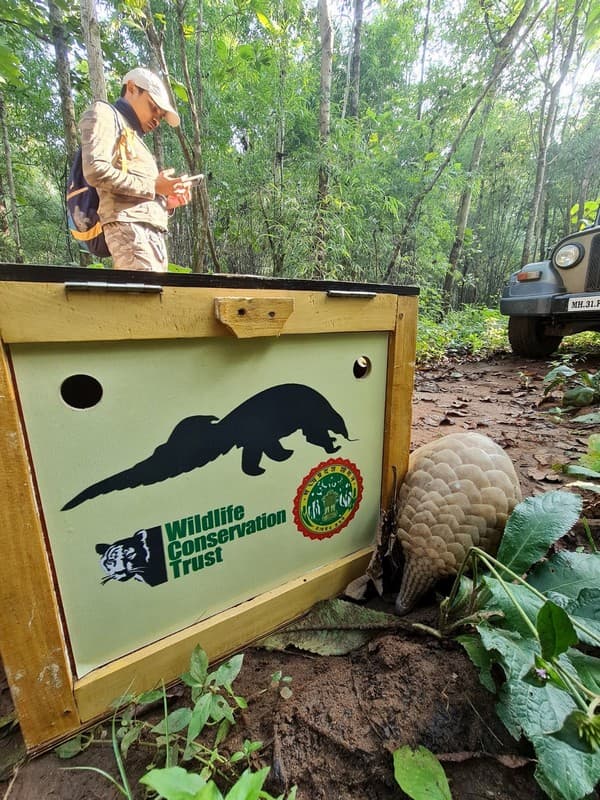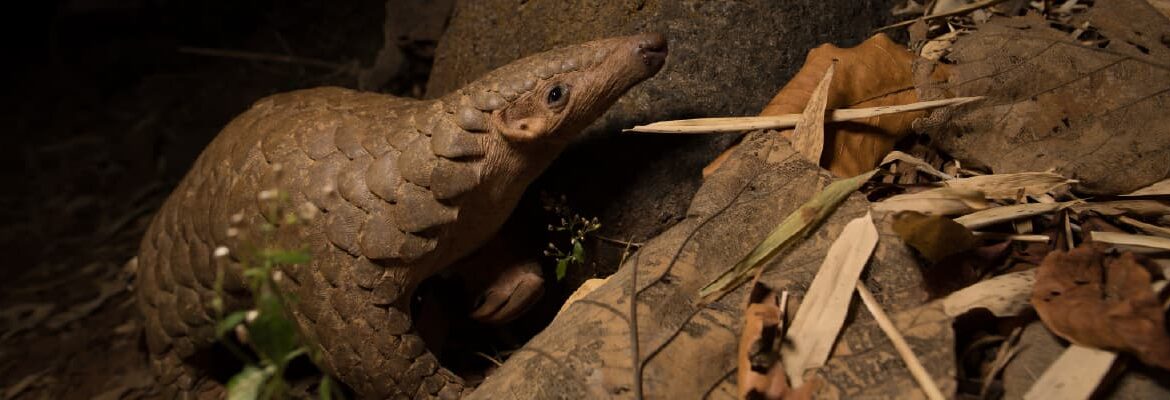Pangolins are the most trafficked mammals on Earth. An unknown but large number of pangolins are killed for their scales and meat globally. In India too, despite stringent protective measures, live pangolins or their scales are being trafficked each year either for domestic consumption or international trade.
There is a dearth of information on pangolin behaviour and habitat preferences owing to its elusive, shy nature and nocturnal lifestyle. To develop an effective conservation strategy and to measure the efficacy of any intervention, it is critical to know the ecology of the species. Hence, WCT, in collaboration with the Madhya Pradesh Forest Department, has begun work to understand the ecology of the Indian pangolin (Manis crassicaudata) and the key factors which govern its presence and habitat use.

WCT research team monitoring a released Indian pangolin in the field. Credit: WCT
Data collected through this project will help improve the efficacy of forest staff in detecting pangolins in the wild and aid in the development of robust protective measures. WCT is using radio telemetry and enlisting the help of its trained conservation dogs to gather data on this elusive nocturnal mammal. The project will also lead to the development of an effective rehabilitation plan for rescued pangolins. To this end, WCT has designed specialised transportation boxes exclusively to transport rescued/confiscated pangolins and has donated them to the Madhya Pradesh Forest Department.

A pangolin shifted to the release site in a specially-designed transportation box. Photo credit: WCT
Header image photo credit: Aditya Joshi/WCT
Your donations support our on-ground operations, helping us meet our conservation goals.
Related Links
- Scaling up Pangolin Conservation in India
- WCT Employs These Interesting Scientific Methods for Conservation & Research
- Why Pitting Ecology vs Economy is Dangerously Naive
- The Solace of Birdsong
- Conservation Dogs
- What is the status of Asian elephants in India?

